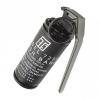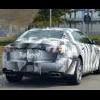Search the Community
Showing results for tags 'higher'.
-
https://www.straitstimes.com/singapore/more-spending-on-healthcare-does-not-mean-a-healthier-population-ong-ye-kung SINGAPORE - The Republic’s healthcare challenge in the coming years is not spending more, but to ensure that Singapore does not go the way of many OECD countries where healthcare costs are “spiralling and escalating out of control”, Health Minister Ong Ye Kung told Parliament on Wednesday. Better health outcomes can be achieved by continuing with Singapore’s sensible and practical approach of having different layers of safety nets – subsidies, MediShield Life, MediSave and MediFund – and combining it with the Healthier SG strategy to reduce the sickness and disease burden even as the population ages, he added. Mr Ong was responding to Progress Singapore Party (PSP) Non-Constituency MP Leong Mun Wai’s assertion on Tuesday that the Government has not spent enough to cover Singaporeans’ healthcare costs, and should be spending more to help with medical bills. Mr Leong had cited data to show that the Government’s share of healthcare expenditure is lower than the average among Organisation for Economic Cooperation and Development (OECD) countries. The majority of the 38 OECD members are regarded as developed countries. Mr Ong noted that it is widely accepted by health economists that spending more on healthcare does not mean better outcomes. For instance, the United States and Britain spend about 17 per cent and 10 per cent of their gross domestic product on healthcare respectively, compared with Singapore’s 4 per cent. Despite this, both those countries are facing a high incidence of chronic illnesses and high obesity rates, and expected lifespans there are lower than in Singapore, he said. Conversely, Singapore has delivered good outcomes given how much it is spending, while keeping healthcare affordable for the middle- and lower-income groups, Mr Ong added. Seven in 10 Singaporeans in subsidised hospital wards do not pay any out-of-pocket expenses, and nine in 10 pay less than $500 in cash. “So when Mr Leong asked the Government to spend more to lower out-of-pocket expenses further, he really meant to channel resources to unsubsidised patients, that is, those staying in A class wards or private hospitals,” he said. “This is where the big bucks and big expenditure are, and it will push our healthcare expenditure and spending to the levels of OECD countries.” Mr Leong also failed to mention that such spending ultimately has to be raised from the people through taxes, and made no mention of where PSP will get the funding from, Mr Ong added. The reality is that government healthcare spending has already been rising, having tripled between 2011 and 2020, and is expected to triple again between 2021 and 2030, said Mr Ong. Mr Leong had also called for increased spending from the Pioneer Generation (PG) and Merdeka Generation funds, as he felt that spending from those funds has been small relative to their total assets. This understanding is misplaced as both funds were sized based on the projected lifetime cost of the benefits, said Mr Ong. He noted that PG members are as young as 74 and “still have quite a bit of runway ahead of them”, though the Government will continue to review the adequacy of both funds. The Health Minister also responded to Workers’ Party MP Jamus Lim’s suggestion that Singapore’s medical infrastructure is too lean, and that the current hospital bed crunch speaks to a need to relook healthcare capacity. Mr Ong said every country is facing a similar crunch post-Covid-19, including the OECD countries despite their higher bed-to-population ratio. The reason for the bed crunch here is that the average length of hospital stay has increased by 15 per cent compared with before the pandemic, he said. This is likely a result of more older people falling ill due to an “immunity debt” as safe management measures were lifted, a problem exacerbated by poorer health from social isolation amid Covid-19. Singapore is catching up on healthcare capacity as projects delayed by Covid-19 – such as the Tan Tock Seng Hospital Integrated Care Hub and Woodlands integrated health campus – are now being completed, said Mr Ong. More transitional care facilities will also be set up to offer rehabilitative care for more stable senior patients. Closing the debate on the motion to support healthcare here beyond the pandemic, Nominated MP Tan Yia Swam responded to Mr Leong’s charge that drug prices were “marked up unreasonably for non-subsidised patients” in order to cross-subsidise others. Dr Tan, who is a breast surgeon, asked if Mr Leong had evidence that this was happening, and noted that non-subsidised patients are those who opt for an A-class or B1-class ward, or foreigners. “I, as a doctor, would think that allowing market forces to determine costings is fair, or would Mr Leong also want taxpayers to pay for everyone?” she asked. Mr Leong said he had heard “feedback from residents (that) they pay different prices when in different classes”, and that while it is understandable for services to be priced differently based on ward class, this should not be the case for drugs. The NCMP had earlier called on the Government to centralise drug procurement across public and private medical institutions, as doing so would reduce the cost of medicine. In response, Mr Ong said Singapore deliberately chose to have a variegated market for healthcare, with private-sector doctors having different business models. For instance, some private doctors charge very low consultation fees but make a margin on the drugs they sell, while others do the reverse, he said. “Sometimes you want to let market forces operate, but at the same time have some discipline through... what we subsidise and what we don’t, and I think that’s how we rein in unnecessary healthcare costs,” said Mr Ong.
- 19 replies
-
- 4
-

-
- healthcare
- spending
-
(and 5 more)
Tagged with:
-
Hi Guys, like your opinion on following Qs: 1) How useful is changing to a higher pressure radiator cap? Let's say from 1.1bar to 1.3bar? My brother recently change from stock 0.9bar to 1.1bar and he said that fuel consumption has improved slightly, presumably from lower engine temp (due to increased pressure in radiator). 2) Is there any performance effect from changing to an aftermarket engine oil cap (eg. Mugen, TRD, Silver's) other than aesthetics reasons? I've read adverts that claim due to the reason that the aftermarket engine oil cap is made from aluminium, it has the effect of helping the engine disperse heat faster - lower temp engine runs more efficiently.
-
Think there have been many cases of people faced with million dollar medical bills. Think it is time to review the need for free healthcare. Would you rather we have high taxes and have free healthcare or have it status quo where healthcare is only for rich in society? http://theindependent.sg/1m-for-hospital-bill-healthcare-or-nightmare/
- 17 replies
-
- healthcare expensive
- swiss
-
(and 7 more)
Tagged with:
-
Singaporean children at higher risk of speech and language delays due to excessive screen time https://www.asiaone.com/digital/singaporean-children-higher-risk-speech-and-language-delays-due-excessive-screen-time?xtor=EREC-16-4%5BEmarsys_Newsletter%5D-20190724&extid=6934d0cfb7b252f1ae9f0dbddf5ff88ca8637e77 In today’s increasingly digitised landscape, it’s nigh-impossible to escape the harsh white light emanating from the screens of electronic displays. It’s harder than ever before for the kids of today not to get exposed to internet-connected gizmos from a tender young age. Unless they’re living off-grid, that is. It’s something that speech and language therapist Ng Jia Yue expressed concerns about with AsiaOne. A senior specialist at SBCC Child Development Centre, the therapist is familiar with how increased screen time can contribute to behavioural problems in young children — delays in the development of speech and language, in particular. “Language delay refers to the difficulties a child has in understanding what others say and/or communicating with others,” she explained. Speech delay, on the other hand, refers to the difficulties a child has in producing speech sounds accurately, making the child difficult to understand. According to Ng, symptoms include (and are not limited to) being unable to simply convey their needs, unable to talk by two-years-old, having poor pronunciation of words, and with a preference for gestures instead of speech. “Some children may also show behavioural problems as they are frustrated when they are unable to express themselves properly,” she mentioned. With Singapore's massive internet penetration and mobile app usage rates, should parents here pay more attention to the time spent by their kids with devices? The answer is a resounding yes, obviously. Read on below to see what Ng has to say about weaning children off screens. How are these delays linked to increased screen time? A study has revealed that for children between ages six and 24 months, each 30-minute increase in handheld screen time is linked to a 49 per cent increased risk of developing expressive speech delays. This means that the ability to communicate using words and sentences may be delayed. Particularly within Singapore, a large proportion of Singaporean children are using screen devices and screen time is on the rise, from 60 to 120 minutes among children between the ages of six months and 24 months. This is significantly higher than the World Health Organisation’s recommended guidelines. Studies suggest that excessive screen time is linked to speech and language delays because face-to-face social interaction is vital to the development of language and other skills. Spending time on the screen may lead to less time for play and social interaction. So, there are fewer opportunities for developing important foundational language skills such as turn-taking. Screen-based interaction is not an effective substitute for interpersonal interaction and stifles the child’s ability to develop communication skills, pick up vocabulary, and gain confidence in expressing themselves. Do late talkers eventually catch up with their peers? Between 70 to 80 per cent of late talkers seem to catch up with peers by school-going age. These children are sometimes referred to as "late bloomers" because they appear to catch up with peers eventually. However, research has shown that these children may still continue to have difficulties in some language and literacy skills (such as reading, writing and listening comprehension), some skills related to language (such as social skills, planning and organising information, perspective taking) and how the brain processes speech. There are also the 20 to 30 per cent of late talkers who do not grow out of their language delay. Hence, if a language delay is suspected, it is important to seek the advice of a speech-language therapist to determine if intervention is necessary. How should screen time be handled? Parents should limit their child’s screen time based on their needs and ensure that screen time does not affect their sleep and daily activities. The World Health Organisation recommends controlled screen time for children under five. Namely: Watching screened devices is not recommended for children aged one-year-old and below. No more than one hour of screen time per day, for children aged two to four years old. Any screen time given to children should also be curated and supervised by parents. Parents can also help build on what they have watched by discussing what their child has watched, such as discussing what happened in the video and helping children to relate it to real life. However, more time should still be allocated for children to be engaged in active play or interactions. What are some methods parents can use to nurture their children’s speech and language development? Parents should always try to engage with their children through play, toys, verbal communication or conversations, reading books, and hands-on activities instead of electronic gadgets. This personal interaction will significantly help develop the child’s cognitive and language skills, as well as develop sensorimotor and visual-motor skills. As the child gets older, it’s also important to sustain the interaction and communication by sharing in the child’s interests and engaging with the child through their interests. This helps to build the child’s confidence in expressing themselves and communicating with others. [email protected]
-
Hi all, I am rather concerned that there’s no effort to protect our login. Currently. Whatever we type seems to be sent in clear and it will be quite easy to obtain both our user name and password. I am suggesting MCF at least implements a verified SSL certificate so we have https running.
- 65 replies
-
- https
- security concern
- (and 6 more)
-
Health is important. All MCF members do take care Women who work nights face higher cancer risk: study http://www.asiaone.com/health/women-who-work-nights-face-higher-cancer-risk-study?xtor=EREC-16-4[Emarsys_Newsletter]-20180109&extid=6934d0cfb7b252f1ae9f0dbddf5ff88ca8637e77 Women who regularly work the night shift in Europe and North America may face a 19 per cent higher risk of cancer than those who work during the day, said a study Monday. These heightened risks were not apparent among female night-shift workers in Australia and Asia, said the meta-analysis in the journal Cancer Epidemiology, Biomarkers and Prevention. "Our study indicates that night shift work serves as a risk factor for common cancers in women," said study author Xuelei Ma, an oncologist at the West China Medical Center of Sichuan University in Chengdu, China. "We were surprised to see the association between night shift work and breast cancer risk only among women in North America and Europe," he added. "It is possible that women in these locations have higher sex hormone levels, which have been positively associated with hormone-related cancers such as breast cancer." The review incorporated 61 previously published studies on the topic, spanning 3.9 million participants from North America, Europe, Australia, and Asia and more than 110,000 cancers. One drawback to the study was that the different definitions of long-term night shift work -- with some of the papers describing it as "working during the night" and others saying "working at least three nights per month." But the association was stark. While overall long-term night shift work increased the risk of cancer by 19 per cent, the risk of certain cancers were even higher. Female night shift workers saw a 41 per cent increased risk of skin cancer and a 32 per cent higher risk of breast cancer. The risk of gastrointestinal cancer was 18 per cent higher than in women who did not perform long-term night shift work. A subset of female nurses was also highlighted in the study, which showed "those who worked the night shift had an increased risk of breast (58 per cent), gastrointestinal (35 per cent), and lung cancer (28 per cent) compared with those that did not work night shifts." Ma noted it was possible that nurses might be more likely to undergo screening, since they work in the medical profession. "Another possible explanation for the increased cancer risk in this population may relate to the job requirements of night shift nursing, such as more intensive shifts." When it came specifically to breast cancer, the risk rose by 3.3 per cent for every five years of night shift work, said the study. Previous research has shown that nighttime work can disrupt the body's circadian rhythms, causing hormonal and metabolic changes that may boost the risk of cancer, diabetes, obesity and depression. "The results of this research suggest the need for health protection programs for long-term female night shift workers," said Ma. "Long-term night shift workers should have regular physical examinations and cancer screenings."
-
Singapore - There were reasons to cheer for those looking to buy a 1,600cc car or a motorcycle, as the Certificates of Entitlement (COE) supply for the August to January period was released yesterday. The monthly quota of COEs in these categories will be increased for the six-month period: There will be 1,096 COEs each month in the small car category, or 76 more per month compared with the previous six-month period. For motorcycles, there will be 775 COEs each month, or 124 more COEs each month. However, buyers of larger cars, goods vehicles and buses are likely to face stiffer competition over the next six months, due to a fall in the COE supply. There will be 706 COEs for cars larger than 1,600cc, 141 fewer than the previous allocated quota. The goods vehicle and buses category will see 68 fewer COEs over the next six months. Overall, COE supply for the next six months remained relatively stable with 3,721 COEs available each month. The COE quota comprises three components: Provision for 1.5 per cent vehicle growth based on the vehicle population as at end December last year; replacement COEs for vehicles deregistered between January and June this year, and adjustment for over-projections of vehicle de-registrations between 2008 and 2009. Motor dealers Today spoke to said they do not expect COE prices to cool off anytime soon. Mr Ron Lim, general manager for Nissan agent Tan Chong Motor, noted that the 7-per-cent increase in the smaller car category is "marginal" compared with the "drastic" 16-per-cent fall seen in the larger car category. "We expect the continental car dealers to enter the smaller cars category and add pressure to the bidding," Mr Lim said. For the larger cars, Singapore Vehicle Traders' Association's honorary secretary Raymond Tang noted that the demand for luxury continental brands is still strong and expects premiums to breach the S$70,000 mark in next week's bidding. "COE prices will keep going up as there aren't enough COEs to go around," Mr Tang said. The next COE quota announcement - for the COE bidding period from February to July next year - will be made in January. The Land Transport Authority said the 1.5 per cent vehicle growth rate, which is valid for three years from 2009 to this year, is under review. It will announce the growth rate from next year once the review is completed. source http://www.todayonline.com/Singapore/EDC11...rs,-motorcycles
-
recently did a research for interest purpose . I noticed the selling price per sqft of a landed property is far higher than the price recorded in the caveat lodged transactions in the same area. This phenomenon is common across all disct. While it is understandable that there is no easy way to compare per sqft price of landed property from one to another due to the build-up/land ratio, reno quality and the property condition etc. But even the per sqft price of hose very poor condition units that would require a massive reno if not a A&A are higher than average transacted price. Wonder how a landed sales/purchase is negotiated? Any experts who could kindly shed some lights would be much appreciated.
-
Recently I noticed that after I fill up petrol and start my vehicle up, the idle RPM tends to go up to around 900. Usually it's closer to 600-700. Is this cause for worry, or normal? I drive off and after a few minutes, idle RPM goes back to the usual when I'm at a stop.
-
Lets all guess what happens by this year end
-
Bros... Anyone knows why some car ads the price stated is much higher than the prevailing market price? In fact it's even higher than a new purchase? Is it to try to get higher loan for the buyer? http://www.sgcarmart.com/used_cars/info.php?ID=489360&DL=1000 But wouldn't the banks check and know this doesn't make sense? Usually how much margin can Seller's try this tactic? Thx
- 1 reply
-
- too high price
- funny car ad
-
(and 5 more)
Tagged with:
-
Hey guys and fellow motoring enthusiast, Just wondering, why are people still buying 2.0l cars when the equivalent 1.4 (super + turbo charged) can be had at lower road tax and better performance, open for discussion:) Btw this is not a bashing thread for 2.0 vs 1.4 or VW vs honda (example only) kind of thread, parties who made whatever decision pls do share your reasons and thoughts, thanks!
- 720 replies
-
- still
- supporting
-
(and 2 more)
Tagged with:
-
My Daihatsu Sirion 1.3 has min RON of 91. Always been pumping 95RON until recently, pumped 2 tankfuls of 92RON discovered some sluggishness whenaccelerating and mileage dropped by about 1km per litre. My friend who drives a petrol driven Toyota Hiace school bus also told me he pumped 95RON due to lack of power for 92RON. is this true, or must engine timing be retard for it to accept 92RON?
-
https://m.facebook.com/story.php?story_fbid=10152684710137934&id=93889432933 Households earning more in 2014: SingStat By Alice Chia POSTED: 16 Feb 2015 14:05 File photo of the Singapore skyline. (Photo: Sutrisno Foo) AA+ SINGAPORE: Households are earning more in 2014 compared to the previous year, according to the latest report by the Singapore Department of Statistics (SingStat) on "Key Household Income Trends, 2014". Median monthly household income among resident employed households - a household headed by a Singapore citizen or Permanent Resident and with at least one working person - from work rose from S$7,870 in 2013 to S$8,290 in 2014. This is a 5.3 per cent increase in nominal terms, or a 4.1 per cent increase in real terms, after taking inflation into account. Median monthly income from each member of the household also rose from S$2,247 in 2013 to S$2,380 in 2014. This is an increase of 5.9 per cent in nominal terms, or 4.7 per cent in real terms. Overall, resident households received S$3,370 per household member on average from various Government schemes in 2014. This is 25 per cent higher than the average amount of S$2,700 received five years ago, in 2009. However, this was lower than the average of S$3,650 received in 2013, owing to a lower level of one-off transfers in 2014, said SingStat. Government structural transfers - transfers excluding one-off payments, rose in 2014 compared to 2013. - CNA/av
- 82 replies
-
- 1
-

-
- salary#
- increased# cna#
- (and 5 more)
-
Interesting study, now you know why your pay was stagnant for past few years and why the women at the sales dept can promote so fast and gotten higher increment [rolleyes] Fish, we misunderstood you all these while [laugh]
-
Recently, I change my stock battery to a maintenance free battery. I heard that my ride (Lancer 2006)'s battery needs 55-60 Amp but I install a MF battery of 70 Amp. It was a direct fit in and replacement of my old stock battery. Are batteries are higher Amp bigger in size? Any side effect to the car if I use a battery of higher Amp? I notice my car manual states the battery should be "55D23l" but my 70 Amp battery is "55D26L". What does this mean? Hope bros can enlighten me. Cheers and thanks!
-
Hi all, need your views! is it worth it to change to a older car with a higher OMV. my current is 2007, with a omv of 23K. after coe finish estimate $ back is about 14-15K including body, now i gt dealer offer which aft bank outstanding i still hv 10K, based on 15K aft coe ends, every yr is abt 1.6K more so if i buy a 2006 car with omv abt 40-45K, is it worth it to change? thanks
-
Hi all, Will a higher CCA make a car more responsive at startup and cruising? How do you achieve a higher than normal CCA in a car? Any downside to it? Please advise me and Thank you very much. Regards,
-
How come most of jeepon city radiation also lower than in sinkie land, even after nuclear leakage... click on link: http://www.jnto.go.jp/eq/eng/04_recovery.htm
-
What is this trying tell us on property market?? If trend continue, many have heavy loans on properties and cars may have trouble to service them. That's the tipping-point?? Higher Layoffs
-
Happened yesterday morning along Keppel Road. I was going to turn into Tanjong Pagar Road. I was in the middle lane. Got this black car driven by an ang moh in front of me. When the 3rd lane as clear, I signaled for a good second and quickly filtered left to prepare for my left turn into Tanjong Pagar. When my car was about a third abreast of the black car, which was still in the middle lane, it also signaled and without checking it just changed lane and almost collided with me. Fortunately it swerved back and I quickly moved forward so that it could make its lane change as well. After the black car slotted in behind me, I looked into the rear view mirror, noticed this ang moh kept shaking his head (somewhat in disgust) probably for the near incident just now. I lifted my hand and showed him my forefinger (hahaha...he prob think its the middle finger). Now I was thinking...CCB you change lane without checking yet still behave as if I am the one wrong. You made a mistake yet still act like you the victim. F u understand. Made a mistake just own up. And the best thing, after changing lane it just went straight prob left turn into Shenton Way. WTF. Just like yesterday along AYE, a Subaru TS drifted into my path and I had to toot my horn. It swerved back and the driver stretched his hand out to apologize. Its just that, both of us never made a meal out of it. This thread is not about incidents or accidents but rather the attitude of some drivers who do not realise they are wrong and continue to act in disgusting manner.
















